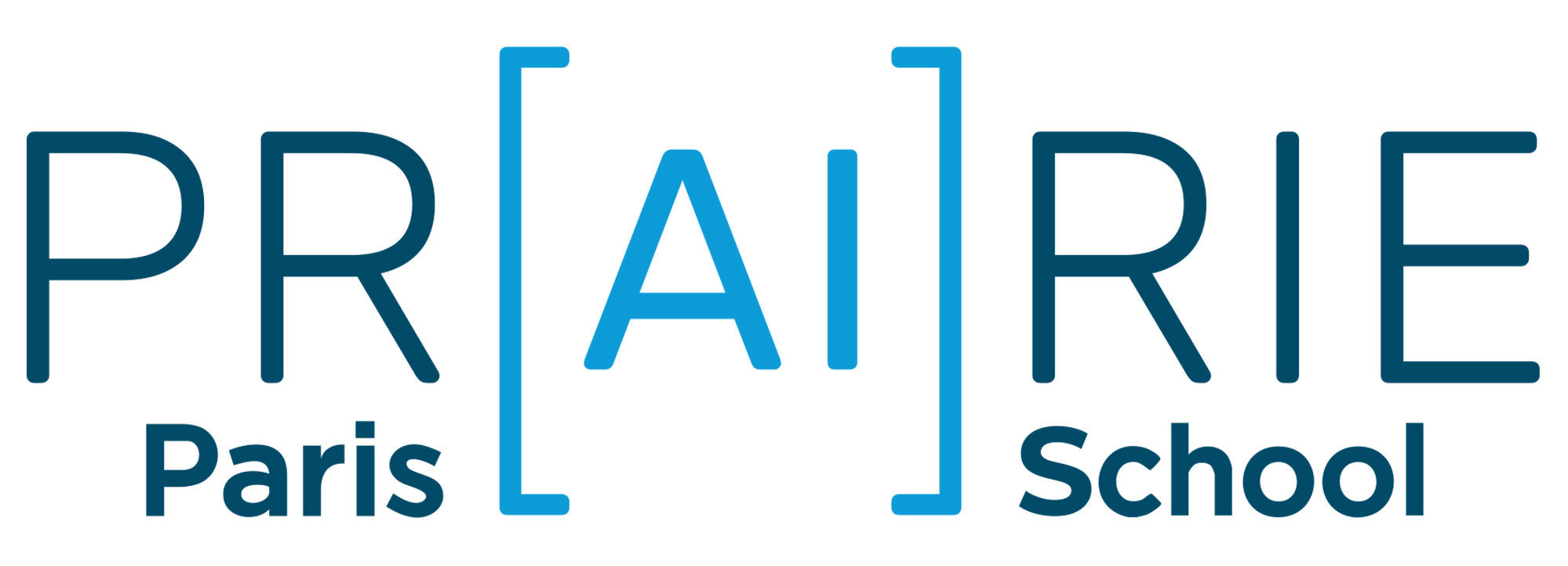9 November 2021
Université Paris Dauphine – PSL, Place du Maréchal de Lattre de Tassigny, 75016 Paris
SPEAKERS BIOS
(alphabetical order)
Stéphanie Allassonnière
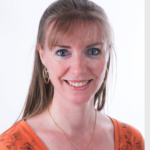
Pr. Université de Paris, Co-fondatrice de Sonio, chaire PR[AI]RIE
Pr. of Applied Mathematics in Université de Paris, PR[AI]RIE fellow and deputy director. She received her PhD degree in Applied Mathematics (2007), studied one year as postdoctoral fellow in the CIS, JHU, Baltimore. She then joined the Applied Mathematics department of Ecole Polytechnique in 2008 as assistant professor and moved to université de Paris, school of medicine in 2016 as Professor.
Her researches focus on the statistical analysis of medical databases in order to: understanding the common features of populations, stratify patients, anticipate diagnosis and design decision support systems.
Francis Bach

Directeur de Recherche Inria, Membre de l’Académie des Sciences, chaire PR[AI]RIE
Francis Bach est chercheur chez Inria, et dirige depuis 2011 l’équipe d’apprentissage statistique (machine learning) du Département d’Informatique de l’Ecole Normale Supérieure (ENS), qui est commune entre le CNRS, l’ENS et Inria. Il est diplômé de l’Ecole Polytechnique (1997) et a obtenu sa thèse en Informatique de l’Université de Berkeley en 2005.
Francis Bach s’intéresse principalement aux aspects algorithmiques et théoriques du machine learning, et plus précisément aux méthodes parcimonieuses, aux méthodes à base de noyaux, à l’optimisation à grande échelle, la vision artificielle et le traitement du signal.
Il a obtenu une bourse “Starting Grant” en 2009, et une bourse “Consolidator Grant” en 2016 du European Research Council. Il a reçu le Prix Inria du jeune chercheur en 2012, le prix “test-of-time ICML” en 2014 et en 2019, ainsi que le Prix Lagrange en optimisation continue en 2018, et le Prix Jean-Jacques Moreau en 2019. Il a été élu à l’Académie des Sciences en 2020.
Emmanuel Bacry
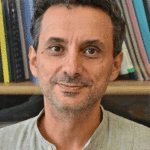
Directeur de recherche CNRS, directeur scientifique du Health Data Hub, chaire PR[AI]RIE
Senior Researcher CNRS (2016-), Chief Scientific Officer of the Health Data Hub (2019-), Head of Health/Data projects, Ecole Polytechnique (2019- ), Head of Data Science & Big Data Initiative and Associate professor at Ecole Polytechnique (2014-2019).
Jean-Luc Beylat

President Nokia Bell Labs France, représentant du club des mécènes de PRAIRIE
Jean-Luc Beylat is VP Ecosystem at Nokia, President of Nokia Bell Labs France. He is also Chairman of the Business Cluster “Systematic Paris–Region” which boasts +900 members and more than €3.8 billion invested in research and development. Jean-Luc Beylat was also elected as president of the French Association for Competitiveness Clusters (AFPC) and Chairman of the Association Bernard Gregory (ABG), an association devoted to PhDs in France.
Jean-Luc first joined Alcatel in 1984, working on semiconductor lasers for seven years at Alcatel’s research Centre in Marcoussis (France). In 1992 he launched various projects concerning WDM transmission which led to an increase in Internet speed by a factor 100, and in 1996 he was appointed Director of the Department of Systems and Optical Networking Research Center, responsible globally for research in terrestrial and submarine transmission. In 2000, he rejoined Alcatel Optic as Program Director then as Vice President for Network Solutions, before finally in 2003 being named as VP in Charge of Partnership Programs at the Alcatel corporate CTO office.
Jean-Luc holds a doctorate in physics onsemi-conductor lasers and their applications, awarded by the University of Pierre Marie Curie (France), now named Sorbonne University. He is a member of the Board of IRT SystemX, the board of the PPP Photonic 21, the board of PSL (Paris Sciences & Lettres) Research university. Finally, he co-founded and chaired the organizing committee of Prix Jean Jerphagnon. He co-chaired, with Pierre Tambourin, the report “L‘innovation, un enjeu majeur pour la France” delivered to the French government in April 2013 and 2 other reports for the French government delivered in 2017, one about IP done by public research and the other one about proposals for the Revision of the Allègre law (proposals were introduced in the PACTE law in 2019).
Geoffrey Bouquot

CTO & VP Strategy du groupe Valeo
Geoffrey Bouquot a rejoint Valeo en décembre 2015 en qualité de Directeur de la Stratégie et des Relations extérieures du Groupe. Il est membre du Comité opérationnel de l’entreprise.
Depuis 2014, il était conseiller technique pour les affaires industrielles au Cabinet de M. Jean-Yves Le Drian, Ministre de la Défense.
Précédemment, il était Chargé d’affaires secteur Aéronautique & Défense au sein de l’Agence des Participations de l’Etat à Bercy. Il fut également Chargé de mission achats et sous-traitance au sein du groupe Latécoère et Chargé de mission auprès du PDG du Groupe OCP.
Geoffrey Bouquot est diplômé de l’Ecole polytechnique (2005) et de l’Ecole des Mines de Paris.
Igor Carron
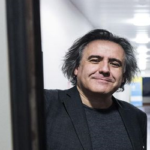
CEO, LightOn, Paris Machine Learning Applications Group Meetup co-founder
Igor Carron is the CEO of LightOn. A long time ago, he received a diplome d’ingénieur from Grenoble INP and a PhD from Texas A&M University.
Justine Cassell

Directeur de Recherche Inria, chaire PR[AI]RIE
Professor and former Associate Dean, School of Computer Science, Carnegie Mellon University (2010-). Chaire Blaise Pascale and Chaire Sorbonne (2017-2018). On leave from CMU, at Inria since fall 2019. ACM Fellow (2017), Fellow Royal Academy of Scotland (2016), AAAS Fellow (2012), Anita Borg Women of Vision Award (2009). AAMAS test-of-time award (2017). Chair, World Economic Forum Global Agenda Council on Robotics & Smart Devices (2011-2014). Since January 2021 a member of CNNUM (Conseil National du Numérique) – French National Digital Council.
Nicolas Champetier
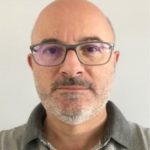
Senior Vice President in Advanced Engineering for Propulsion Systems, Stellantis
He is Senior Vice President in Advanced Engineering for Propulsion Systems. He has been working for 30 years at Stellantis (ex-Groupe PSA). He has occupied the position of Senior Vice President R&D, Process Engineering Manufacturing and IT at Stellantis China Direction of the Technical Centre of Shanghai and Senior Vice President Project Director of the Common Modular Platform (CMP/eCMP) which was co-developed in co-ownership with Dongfeng Motors. Furthermore, he was Vice president for platforms development and platforms leading. He is a former student of the Engineering school ENSAM (Ecole Nationale Supérieure des Arts et Métiers).
Emmanuel Chiva

Directeur de l’Agence de l’innovation de défense
Emmanuel Chiva a été nommé au poste de directeur de l’Agence de l’innovation de défense à compter du 1er septembre 2018, membre du comité exécutif de la DGA et rattaché au Délégué général pour l’Armement.
Agé de 52 ans, Emmanuel Chiva a travaillé depuis plus de 20 ans dans les domaines de l’intelligence artificielle et de la simulation militaire. Jusqu’au 31 août 2018, il était cofondateur et directeur général adjoint en charge de la stratégie et du développement de la société AGUERIS, filiale de John Cockerill Defence, société spécialisée dans la simulation opérationnelle et l’entraînement pour les opérateurs de systèmes d’armes.
Normalien, Emmanuel Chiva est docteur en biomathématiques avec une spécialisation en intelligence artificielle et dans le domaine des systèmes complexes et du biomimétisme. Auditeur de la 49e session nationale Armement & économie de défense de l’IHEDN, il a été pendant trois ans vice-président de l’association des auditeurs et cadres des hautes études de l’armement (AED-IHEDN). Il est également capitaine de vaisseau de réserve et a travaillé sur des sujets liés à l’innovation technologique (notamment l’intelligence artificielle) pour l’état-major de la Marine nationale. À ce titre, il a imaginé et organisé les deux premiers « Hackatons » de la Marine nationale en collaboration avec Thales et l’École 42.
Emmanuel Chiva a débuté sa carrière en 1997 chez MASA (Mathématiques appliquées SA) Technologies logicielles de simulation – systèmes adaptatifs, intelligence artificielle, et modélisation du comportement humain pour la défense et la sécurité globale où il a exercé les fonctions de directeur général adjoint puis de vice-président exécutif tout en fondant et développant la Business Unit Simulation militaire. MASA (aujourd’hui MASA Group) a notamment réalisé le système SCIPIO d’entraînement des postes de commandement de l’armée de Terre.
En 2007, il est cofondateur et associé de la société SILKAN spécialisée dans le calcul haute performance, les technologies embarquées et la simulation. Depuis 2014, il était en parallèle président de la commission recherche, technologie et innovation du GICAT (groupement des industriels de l’armement terrestre) et président du jury du programme GENERATE d’accompagnement des start-ups innovantes dans le domaine de la défense aéroterrestre et de la sécurité. Enfin, Emmanuel Chiva a créé et animait jusqu’il y a peu le blog VMF214 (vmf214.net) sur l’innovation technologique de défense.
Emmanuel Chiva est Chevalier de la Légion d’Honneur. Il est marié et père d’un enfant.
Kyunghyun Cho

Associate Professor of Computer Science and Data Science at New York University, Senior Director of Frontier Research at Genentech Research and Early Development (gRED)
Kyunghyun Cho is an associate professor of computer science and data science at New York University and CIFAR Fellow of Learning in Machines & Brains. He is also a senior director of frontier research at the Prescient Design team within Genentech Research & Early Development (gRED).
He was a research scientist at Facebook AI Research from June 2017 to May 2020 and a postdoctoral fellow at University of Montreal until Summer 2015 under the supervision of Prof. Yoshua Bengio, after receiving PhD and MSc degrees from Aalto University April 2011 and April 2014, respectively, under the supervision of Prof. Juha Karhunen, Dr. Tapani Raiko and Dr. Alexander Ilin. He tries his best to find a balance among machine learning, natural language processing, and life, but almost always fails to do so.
Jean-Michel Dalle
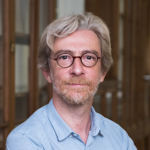
Managing Director of Agoranov
Jean-Michel DALLE is the Managing Director of Agoranov, a leading European deeptech incubator located in Paris, and a Professor at Sorbonne Université. Agoranov has incubated 450+ innovative startups, among which 5 unicorns and numerous other success stories, that employ 12000+ people and have already raised more than 2 billion euros. M. Dalle is a former Visiting Fellow of All Souls College and of the Oxford Internet Institute, both at the University of Oxford. He graduated from Ecole Polytechnique, ENSAE and EHESS and holds a PhD in Economics also from Ecole Polytechnique. M. Dalle is a member of France’s Supervisory Board for Future Investments.
Douglas Eck

Senior Research Director, Google Research
Douglas Eck is a Senior Director at Google Research working on the Brain Team. He is currently located in Paris. Doug completed his PhD in Computer Science and Cognitive Science at Indiana University in 2000 and went on to a postdoctoral fellowship with Juergen Schmidhuber at IDSIA in Lugano Switzerland. Before joining Google in 2010, Doug was faculty in Computer Science in the University of Montreal machine learning group (now the MILA machine learning lab) where he became Associate Professor. For more information see http://g.co/research/douglaseck.
Jean-Christophe Fondeur

Chief Technology Officer, Idemia
Jean-Christophe Fondeur, is the Chief Technical Officer (CTO) of IDEMIA and therefor responsible for IDEMIA’s technological innovations with a specific focus on artificial intelligence and cloud architecture. In his former position, Jean-Christophe led Morpho’s activities in algorithm research, and was involved in the company’s biometric advances over the last 20 years, including the development of digital fingerprinting and face recognition algorithms, multi-biometric systems for the crossing of frontiers and scalable architecture design for very large biometric systems used by the FBI and UID (Unique Identification Authority) in India. He has also created over a dozen patents in the field of biometrics and is a senior member of the IEEE (Institute of Electrical and Electronic Engineers). He holds engineering degrees from l’Ecole Polytechnique and Telecom ParisTech and is a frequent speaker at scientific conferences around the world.
Leo Grady

CEO, Page.AI
Leo Grady joined Paige as CEO in 2019. He has over 15 years of experience developing and commercializing advanced machine learning, computer vision, and diagnostic imaging technologies that have made a significant impact on medical practice. Under Grady’s leadership, Paige became the first company to receive FDA approval for an AI product in digital pathology, Paige Prostate. Paige also received FDA clearance for its FullFocus™ digital pathology viewer and CE marks for Paige Prostate and Paige Breast. Previously, Grady was Senior Vice President of Engineering and Product at HeartFlow and served in various scientific and leadership roles at Siemens. Grady was inducted as a Fellow in the American Institute for Medical and Biological Engineering in 2014. In 2012, he received the Edison Patent Award in medical imaging. He received a Ph.D. in Cognitive and Neural Systems from Boston University and a B.Sc. in Electrical Engineering at the University of Vermont.
Martial Hebert
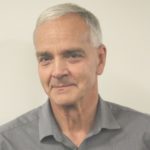
Pr. de Robotique, Doyen de la School of Computer Science, Carnegie Mellon University
Martial Hebert est professeur de robotique à l’Université Carnegie-Mellon, où il a été directeur de l’Institut de robotique de 2014 à août 2019; il est maintenant doyen de la School of Computer Science. Ses domaines de recherche sont la vision par ordinateur et la robotique, en particulier la reconnaissance d’images et de données vidéo, la construction de modèles et la reconnaissance d’objets à partir de données 3D, ainsi que la perception de systèmes autonomes, de véhicules intelligents et de robotique personnelle. Son groupe a développé des approches pour la reconnaissance d’objets et l’analyse de scènes d’images, de nuages de points 3D et de vidéos. Plus récemment, ses recherches comprenaient le méta-apprentissage et la minimisation de la supervision lors de l’apprentissage. Il est actuellement rédacteur en chef de l’International Journal of Computer Vision.
Jean-Paul Laumond
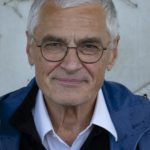
Directeur de recherche CNRS, membre de l’académie des sciences, membre de l’académie des technologies, chaire PR[AI]RIE
Jean-Paul Laumond est roboticien, directeur de recherche émérite au CNRS. Il effectue sa carrière au LAAS-CNRS à Toulouse jusqu’en 2019, date à laquelle il rejoint l’équipe Willow du département informatique de l’ENS à Paris (unité mixte 8548 ENS-CNRSINRIA-PSL). De formation mathématique, sa recherche est dominée par l’algorithmique de la planification de mouvement en robotique, un domaine scientifique dont il a contribué à jeter les bases. En 2006 il crée le groupe de recherche Gepetto dédié à l’étude des fondements calculatoires de l’action anthropomorphe et co-dirige dans ce cadre le laboratoire franco-japonais JRL sur la robotique humanoïde de 2005 à 2008. De 2014 à 2018, il conduit le projet Actanthrope soutenu par l’European Research Council (ERC). Il est Fellow de l’IEEE. En 2011-2012 il est le titulaire de la chaire Innovation Technologique Liliane Bettencourt du Collège de France. En 2016 il est le lauréat du prix international IEEE Inaba Technical Award for Innovation Leading to Production. Il est membre de l’Académie des technologies et membre de l’Académie des sciences.
Xavier Lazarus
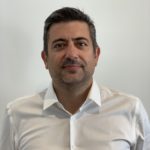
Fondateur associé d’Elaia
Xavier a cofondé Elaia. Après avoir débuté sa carrière dans le laboratoire de recherche en Arithmétique et Géométrie Algébrique de l’Université Paris-Sud, Xavier a fondé une start-up dans le secteur de l’e-learning vendue en 1999 à un éditeur français. Il a ensuite rejoint le CPR (racheté par Crédit Agricole Indosuez) où il a créé et développé une activité de capital-risque dans les secteurs du logiciel et de l’Internet.
Yann Le Cun

VP & Chief AI Scientist at Facebook, Silver Professor at New York University (NYU), ACM Turing Award Laureate
Yann LeCun is VP and Chief AI Scientist at Facebook and Silver Professor at NYU affiliated with the Courant Institute, the Center for Data Science the Center for Neural Science and the Electrical and Computer Engineering Department. He was the founding Director of Facebook AI Research and of the NYU Center for Data Science.
He received the Electrical Engineer Diploma from ESIEE, Paris (1983), and a PhD in CS from Sorbonne Université (1987). After a postdoc at the University of Toronto, he joined AT&T Bell Laboratories (Holmdel, NJ) in 1988, later becoming the head of the Image Processing Research Department at AT&T Labs-Research in 1996. He joined NYU as a professor in 2003, following a brief period at the NEC Research Institute (Princeton). In 2012. He became the founding director of the NYU Center for Data Science. In late 2013, he was named Director of AI Research at Facebook, remaining on the NYU faculty part-time. He held a visiting professor chair at Collège de France in 2015-2016.
His current interests include AI, machine learning, computer perception, robotics, and computational neuroscience. He is best known for his contributions to deep learning and neural networks, particularly the convolutional network model which is very widely used in computer vision and speech recognition applications. He has published over 190 papers on these topics as well as on handwriting recognition, image compression, and dedicated hardware for AI.
LeCun is founder and general co-chair of ICLR and has served on several editorial boards and conference organizing committees. He is co-chair of the program Learning in Machines and Brains of the Canadian Institute for Advanced Research. He has been on the science advisory board of IPAM (since 2008) and the board of trustees of ICERM . He has advised many companies and co-founded startups Elements Inc. and Museami. He is in the New Jersey Inventor Hall of Fame. He is a member of the US National Academy of Sciences, the National Academy of Engineering, a Chevalier de la Légion d’Honneur, a fellow of AAAI, the recipient of the 2014 IEEE Neural Network Pioneer Award, the 2015 IEEE PAMI Distinguished Researcher Award, the 2016 Lovie Lifetime Achievement Award, the 2018 University of Pennsylvania Pender Award, and honorary doctorates from IPN, Mexico and EPFL.
He is the recipient of the 2018 ACM Turing Award (with Geoffrey Hinton and Yoshua Bengio) for “conceptual and engineering breakthroughs that have made deep neural networks a a critical component of computing”.
Dominique Le Guludec

Présidente du collège de la Haute Autorité de Santé
Après un clinicat en cardiologie à l’hôpital Antoine Béclère (Paris XI), Dominique LE GULUDEC se spécialise en biophysique et en médecine nucléaire à l’hôpital Bichat (Paris VII). Elle y était responsable du service de médecine nucléaire, puis du pôle imagerie médicale. Sur le plan de la recherche, Dominique LE GULUDEC était responsable de l’Equipe Inserm “Cardio-Vascular Imaging”, Equipe 4, Unité 1148, de plusieurs programmes d’innovation nationaux et européens dans l’imagerie et les nanotechnologies. Elle exerçait par ailleurs des fonctions d’enseignement à Paris 7, et des fonctions administratives, notamment la présidence de la Commission Médicale d’Etablissement du Groupe Hospitalier des Hôpitaux Universitaires Paris Nord (HUPNVS). Enfin elle a eu une activité scientifique au niveau international (Présidente du Cardio-Vascular Committee of the European Association of Nuclear Medicine (2002-06), Membre du European Council of Nuclear Cardiology (2005-2013), Membre de l’Executive Committee of EANM, (2011-2013).
Christoph Lütge

Professor at Technische Universität München (TUM), Director of the TUM Institute for Ethics in Artificial Intelligence
Christoph Lütge is Full Professor of Business Ethics at Technical University of Munich (TUM) and the Director of the TUM Institute for Ethics in Artificial Intelligence (IEAI). He is Distinguished Visiting Professor of Tokyo University and has held further visiting positions at Harvard, Stockholm, Taipei and Kyoto. He has been appointed as an External Member of the Karel Čapek Center for Values in Science and Technology of the Czech Academy of Sciences, Prague, as well as of the Executive Committee of the International Society of Business, Economics, and Ethics (ISBEE). Professor Lütge has a background both in philosophy as well as business informatics, having taken his PhD at the Technical University of Braunschweig in 1999 and his habilitation at the University of Munich (LMU) in 2005. In 2007, he was awarded a Heisenberg Fellowship by the German Research Foundation.
His most recent books are: “An Introduction to Ethics in Robotics and AI” (Springer, 2021, with coauthors) and “Business Ethics: An Economically Informed Perspective” (Oxford University Press, 2021, with Matthias Uhl). He is a member of the European AI Ethics initiative AI4People and of the German Ethics Commission on Automated and Connected Driving (2016-17). Since 2020, he is Consortium Leader of the Global AI Ethics Consortium.
Alice Memang

Co-fondatrice & Directrice d’exploitation de Delfox
Alice est en charge à la fois du développement commercial et de la croissance stratégique, et contribue activement à l’encadrement de l’ensemble des équipes de Delfox. De façon concrète, son rôle quotidien consiste à définir les orientations stratégiques et commerciales, et à les mettre en oeuvre de façon opérationnelle.
Diplômée en commerce international, elle a créé sa première entreprise en 2009. Sa passion pour l’entrepreneuriat s’est renforcée lors d’une riche expérience professionnelle en tant que Manager des Risques au sein d’une ETI française. Ces expériences lui ont permis d’être partie prenante des décisions d’organisations de taille importante, et d’en comprendre les enjeux.
Lors de son intégration au projet Delfox en 2017, Alice a décidé de devenir dirigeante d’une entreprise dans un secteur fortement innovant, pour contribuer à construire le monde de demain.
Hervé Moulin

D.J. Robertson Chair in Economics at the University of Glasgow, Chaire Blaise Pascal de la Region Île-de-France
Hervé Moulin graduated in 1971 from the Ecole Normale Superieure and received his Ph.D. in mathematics in 1975. After teaching at the E.N.S.A.E. and Dauphine University in Paris, he moved to the USA in 1984, first at Virginia Tech, then Duke and finally Rice Universities. Since 2013 he is the D.J. Robertson Chair in Economics at the University of Glasgow. A Fellow of the Econometric Society since 1983, of the Royal Society of Edinburgh since 2015, and of the British Academy since 2018, he is a past President of the Game Theory Society and of the Social Choice and Welfare Society. He has written five books and over 100 peer-reviewed articles. He is currently the Editor in Chief of Games and Economic Behaviour.
Clara Nordon

Directrice de La Fondation MSF
Diplômée de l’université de Paris Dauphine (Sciences de gestion) et de UCLA (Los Angeles), Clara entame une carrière à l’international au sein d’une société de production de films à Shanghai, puis d’une banque privée à Singapour. Elle rejoint MSF en 2012 où elle occupe différentes fonctions sur le terrain: de la production de films éducatifs en passant par la coordination d’urgences, elle effectue plusieurs missions au Yémen, en République démocratique du Congo, en Haïti, en Ukraine et au Bangladesh.
C’est cette expérience terrain et son intérêt pour la technologie qui la poussent à orienter les activités de La Fondation MSF vers le développement de projets de R&D visant à améliorer l’approche des interventions médico humanitaires.
Sophie Paturle-Guesnerot

Cofondatrice et Managing Partner de Demeter IM
Sophie Paturle Guesnerot est cofondatrice et managing partner de Demeter IM ; elle possède une longue expérience du capital-investissement acquise au sein de BTP Capital, du Crédit du Nord puis de la Société Générale avant de cofonder en 2015, Demeter, société de capital-investissement pionnière et leader dans la transition écologique en Europe. Demeter qui gère 1 Md€, a investi dans plus de 180 entreprises qui permettent la mise en œuvre de la transition écologique.
Sophie a aussi exercé les fonctions d’auditeur chez PricewaterhouseCoopers (BEFEC SA).
Au titre de Demeter, Sophie est administrateur ou membre des conseils de surveillance d’Aledia, d’Avidsen et de Girève.
Par ailleurs, Sophie est administrateur de l’IFP Energies Nouvelles, de France Brevets et d’Hexaôm. Elle préside la Commission Climat de France Invest et y a occupé les fonctions d’administrateur et de Présidente d’AFIC avec Elles.
Sophie est diplômée de Sciences Po Paris et possède un Master en économie. Elle est Chevalier de l’Ordre National du Mérite.
Vanessa Picron
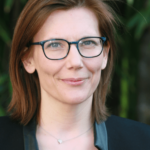
Product Lines, Strategy & Innovation VP for Faurecia Clarion Electronics
Vanessa graduated in Aerospace engineering in 1996. She then worked in the automotive industry, starting on powertrain systems. From 2012, she switched to lead self driving car development at Valeo: from new sensors, perception algorithms, fusion and driving policy. She then moved to Germany to lead engineering towards mass production of sensors and ECU for first L3 automated cars. She now works in Faurecia as Electronics product lines, innovation and strategy VP.
Raj Reddy

University Professor of Computer Science and Robotics and Moza Bint Nasser Chair in the School of Computer Science at Carnegie Mellon University, ACM Turing Award Laureate
Raj Reddy has served on Faculty of Carnegie Mellon for over 50 years, where he served as the founding Director of the Robotics Institute and as the Dean of the School of Computer Science. He served as co-chair of the President’s Information Technology Advisory Committee and has been awarded 11 honorary doctorates. Dr. Reddy is the recipient of Legion d’Honneur, Padma Bhushan, Honda Prize, Vannevar Bush Award, and the 1994 Turing Award (jointly with Edward Feigenbaum) “for pioneering the design and construction of large scale artificial intelligence systems, demonstrating the practical importance and potential commercial impact of artificial intelligence technology.”
Bernard-Louis Roques

Co-founder and General Partner, Truffle Capital
Bernard-Louis Roques is a Pioneer in European FinTech / InsurTech, founded the 1st European FinTech Incubator in 2014 with 6 Fintechs created or funded by Truffle (of which 4 exits with good multiples). He started as bond trader @ HSBC, created and sold a robotics company & co-founded Truffle Capital. Truffle Capital has 1bn€ AUM, 50 investments with 14 IPOs and 20 M&A exits. Author of the « Truffle 100 », leading research on software vendors in France, mentor of ESSEC Ventures. MBA from ESSEC Business School and Executive Certificate from MIT.
Arnaud Rosier

CEO et co-fondateur d’Implicity, rythmologue et docteur en informatique médicale
Dr Arnaud Rosier est cardiologue et docteur en informatique médicale (ex-INSERM). Son second doctorat a été codirigé par Pr Anita Burgun et Pr Philippe Mabo, au sein de deux laboratoires INSERM, qui collaborent toujours avec la société et dont ils sont membres du conseil scientifique. Il crée Implicity pour prolonger ses recherches après thèse. Arnaud, avec 15 ans d’expérience en électrophysiologie cardiaque et 12 ans en intelligence artificielle et ingénierie des connaissances appliquée à la santé, est l’auteur d’une dizaine de publications internationales dans des revues à comité de lecture, notamment sur la télécardiologie et les apports de l’IA dans l’aide à la décision médicale. Il est également Business Angel de sociétés de santé digitale parmi lesquelles Cardiologs, Lifen, Ambuliz, Biloba, etc. Dans le contexte d’Implicity, il est pleinement opérationnel et occupe le poste de CEO.
Cordelia Schmid

Research Director at Inria, member of the German National Academy of Sciences Leopoldina, chaire PR[AI]RIE
Cordelia Schmid holds a M.S. degree in Computer Science from the University of Karlsruhe and a Doctorate, also in Computer Science, from the Institut National Polytechnique de Grenoble (INPG). Her doctoral thesis on “Local Greyvalue Invariants for Image Matching and Retrieval” received the best thesis award from INPG in 1996. She received the Habilitation degree in 2001 for her thesis entitled “From Image Matching to Learning Visual Models”. Dr. Schmid was a post-doctoral research assistant in the Robotics Research Group of Oxford University in 1996–1997. Since 1997 she has held a permanent research position at Inria, where she is a research director.
Dr. Schmid is the author of over three hundred technical publications. She has been an Associate Editor for IEEE PAMI (2001–2005) and for IJCV (2004–2012), editor-in-chief for IJCV (2013—), a program chair of IEEE CVPR 2005 and ECCV 2012 as well as a general chair of IEEE CVPR 2015, ECCV 2020 and ICCV 2023. In 2006, 2014 and 2016, she was awarded the Longuet-Higgins prize for fundamental contributions in computer vision that have withstood the test of time. She is a fellow of IEEE. She was awarded an ERC advanced grant in 2013, the Humbolt research award in 2015 and the Inria & French Academy of Science Grand Prix in 2016. She was elected to the German National Academy of Sciences, Leopoldina, in 2017. In 2018 she received th Koenderink prize for fundamental contributions in computer vision that have withstood the test of time. She received the Royal Society Milner award in 2020. Starting 2018 she holds a joint appointment with Google research.
